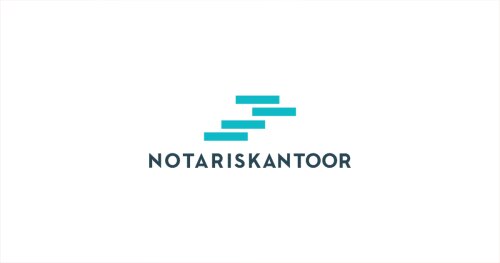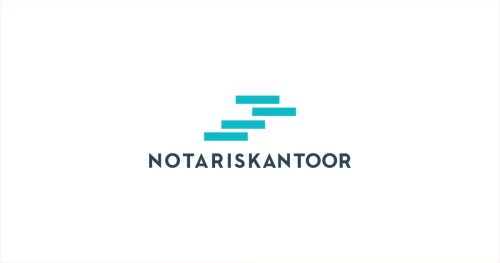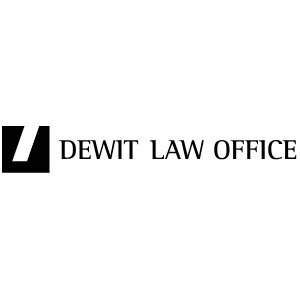Best Sanctions & Export Controls Lawyers in Brussels
Share your needs with us, get contacted by law firms.
Free. Takes 2 min.
List of the best lawyers in Brussels, Belgium
About Sanctions & Export Controls Law in Brussels, Belgium
Sanctions and export controls are legal measures put in place by governments and international bodies to regulate or restrict the movement of certain goods, services, and technologies for reasons related to national security, foreign policy, and global stability. In Brussels, Belgium, which serves as both the capital of the country and a key European Union hub, these laws are particularly important due to the presence of many multinational companies, EU institutions, and diplomatic missions. Sanctions may restrict trade with specific countries, organizations, or individuals, while export controls can regulate the transfer of sensitive items such as military equipment, dual-use goods, or technology that can be used for both civilian and military purposes.
Why You May Need a Lawyer
Navigating sanctions and export controls in Brussels can be complex, especially given the overlap between Belgian, European Union, and international regulations. Here are common situations where legal assistance is essential:
- Your business seeks to export goods, services, or technology from Belgium to another country
- You are unsure if your products or clients fall under EU or Belgian sanctions or export controls
- You have received a notice of investigation from Belgian, EU, or international authorities regarding compliance with sanctions or export controls laws
- You are part of a multinational organization with activities or clients in high-risk jurisdictions
- You need to conduct due diligence on third parties, clients, or business partners
- Your shipment or financial transactions have been blocked or flagged by customs or banking authorities
- You are concerned about potential criminal or civil liability due to past or upcoming exports
- You require guidance on licensing requirements or exemption procedures
A qualified lawyer can help clarify your legal obligations, liaise with authorities, mitigate risks, and ensure that your business operations remain compliant.
Local Laws Overview
Belgium enforces sanctions and export controls based on national legislation, but also through direct application of European Union laws. Key pieces of legislation and regulatory bodies include:
- EU Sanctions: As an EU Member State, Belgium implements all binding restrictive measures adopted by the Council of the European Union, including arms embargoes, asset freezes, travel bans, and sectoral measures targeting specific countries or individuals.
- Belgian National Law: Belgian authorities are responsible for enforcing compliance with both EU and United Nations sanctions, as well as national controls on sensitive goods.
- Export Control: The export, transit, and brokering of military goods, dual-use items (products that can be used for both civilian and military purposes), and technology are regulated by strict licensing requirements, governed by both EU Dual-Use Regulation and Belgian law.
- Enforcement: Belgian Customs, the Federal Public Service Economy, and other competent authorities conduct inspections, investigations, and enforce penalties for violations.
Failure to comply with these laws can result in severe civil, administrative, or even criminal penalties, including fines and imprisonment.
Frequently Asked Questions
What types of goods are subject to export controls in Belgium?
Export controls typically apply to military goods, dual-use items, nuclear materials, and certain chemicals, as well as software and technology that could be used for military purposes.
Are all sanctions adopted at the EU level automatically applicable in Belgium?
Yes, all EU sanctions are directly applicable in Belgium. Additional national measures may also be in force in some cases.
Can my company apply for a license to export controlled goods?
Yes, but you must submit an application to the relevant Belgian authority, which will assess your request against legal criteria and security interests.
What are the penalties for violating sanctions or export controls?
Penalties can include the seizure of goods, financial fines, revocation of licenses, and, in severe cases, criminal prosecution resulting in imprisonment.
How do I know if my business partners are under sanctions?
You must check the EU consolidated sanctions list, Belgian government publications, and conduct thorough due diligence before engaging in business activities.
Are there exceptions or exemptions to sanctions and export controls?
Some exemptions may apply for humanitarian purposes, diplomatic activities, or specific authorized transactions, but these require advance approval or a license.
How often do sanctions and export controls regulations change?
Sanctions and export controls are updated regularly in response to international developments. Businesses must stay informed about current lists and applicable laws.
Does my business need an internal compliance program?
While not legally mandatory for all, an effective internal compliance program is strongly recommended to prevent violations and detect risks early.
Which government bodies are responsible for enforcement in Belgium?
Key authorities include Belgian Customs, the Federal Public Service Economy, the Ministry of Foreign Affairs, and judicial authorities for enforcement and investigation.
What should I do if I suspect a breach or violation?
Seek legal advice immediately, document your concerns, and cooperate with authorities as required. Taking early and proactive steps can help mitigate liability.
Additional Resources
- Federal Public Service Economy - Export Control and Strategic Goods Unit
- Belgian Customs and Excise Administration
- Belgian Ministry of Foreign Affairs - Sanctions Desk
- European Commission - Service for Foreign Policy Instruments (FPI)
- United Nations Security Council Sanctions Committees
- Belgian Bar Associations - Legal referrals
These organizations can provide further information, official guidance, and support for both businesses and individuals seeking to understand or comply with sanctions and export controls.
Next Steps
If you believe that sanctions or export controls laws may affect you or your business, consider the following actions:
- Gather all relevant documentation regarding your products, transactions, and business partners
- Conduct a preliminary screening against published sanctions lists and check for export control classifications
- Contact a qualified legal professional in Brussels with experience in sanctions and export controls
- Stay informed about frequent updates to local, EU, and international regulations
- Develop or review your company’s internal compliance procedures
Taking proactive steps and seeking specialized legal advice can help you avoid costly mistakes and ensure that your activities remain legally compliant in a complex regulatory environment.
Lawzana helps you find the best lawyers and law firms in Brussels through a curated and pre-screened list of qualified legal professionals. Our platform offers rankings and detailed profiles of attorneys and law firms, allowing you to compare based on practice areas, including Sanctions & Export Controls, experience, and client feedback.
Each profile includes a description of the firm's areas of practice, client reviews, team members and partners, year of establishment, spoken languages, office locations, contact information, social media presence, and any published articles or resources. Most firms on our platform speak English and are experienced in both local and international legal matters.
Get a quote from top-rated law firms in Brussels, Belgium — quickly, securely, and without unnecessary hassle.
Disclaimer:
The information provided on this page is for general informational purposes only and does not constitute legal advice. While we strive to ensure the accuracy and relevance of the content, legal information may change over time, and interpretations of the law can vary. You should always consult with a qualified legal professional for advice specific to your situation.
We disclaim all liability for actions taken or not taken based on the content of this page. If you believe any information is incorrect or outdated, please contact us, and we will review and update it where appropriate.














